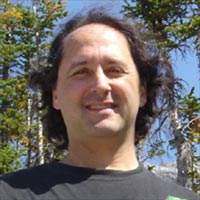Workshop on
Quantum Mechanics: Axiomatics of Measurements and connections with Computing and Information Retrieval
Efficiently simulating evolution of states on a quantum computer
University of Calgary
>VITAE:
Dr Barry Sanders is iCORE Professor of Quantum Information Science and
Director of the Institute for Quantum Information Science at the University
of Calgary. He is especially well known for seminal contributions to theories
of quantum-limited measurement, highly nonclassical light, practical quantum
cryptography, and optical implementations of quantum information tasks.
His current research interests include quantum resources and also optical
and atomic implementations of quantum information tasks and protocols.
Dr. Sanders is a Fellow of the Institute of Physics (U.K.), the Optical Society of America, the Australian Institute of Physics, and the American Physical Society, a past President of the Australian Optical Society, current Secretary-Treasurer of the American Physical Society Topical Group on Quantum Information, Concepts, and Computation, and an editorial board member for both Physical Review A and the New Journal of Physics. In addition, Dr. Sanders serves on numerous conference committees for the American Physical Society, the International Society for Optical Engineering (SPIE), the Optical Society of America, and various quantum information conferences and is Chair of the Photons, Atoms, and Qubits conference to be held in London in 2007.

Feynman [Int. J. Theoret. Phys. 21, 467-488 (1982)] suggested that a quantum computer could serve as an efficient simulator of state evolution in cases where classical algorithms are inefficient, and Lloyd [Science 273, 1073-1078 (1996)] provided the first rigorous analysis of this conjecture. Using primitives introduced by Aharonov and Ta-Shma [Proc. 35th Annual ACM Symp. on Theory of Computing, 20-29 (2003)] for studying adiabatic quantum state generation, we introduce a quantum algorithm for simulating state evolution by a time-independent Hamiltonian whose cost is nearly linear in time (and we prove that an algorithm whose cost is sub-linear in time cannot exist) and nearly quadratic in terms of the sparseness of the Hamiltonian for sparse Hamiltonian evolution [Berry, Ahokas, Cleve and Sanders, Comm. Math. Phys. 270: 359-371 (2007)]. I will also discuss our efforts to establish an efficient simulation of state evolution for time-dependent Hamiltonians that is comparable to our time-independent Hamiltonian result.